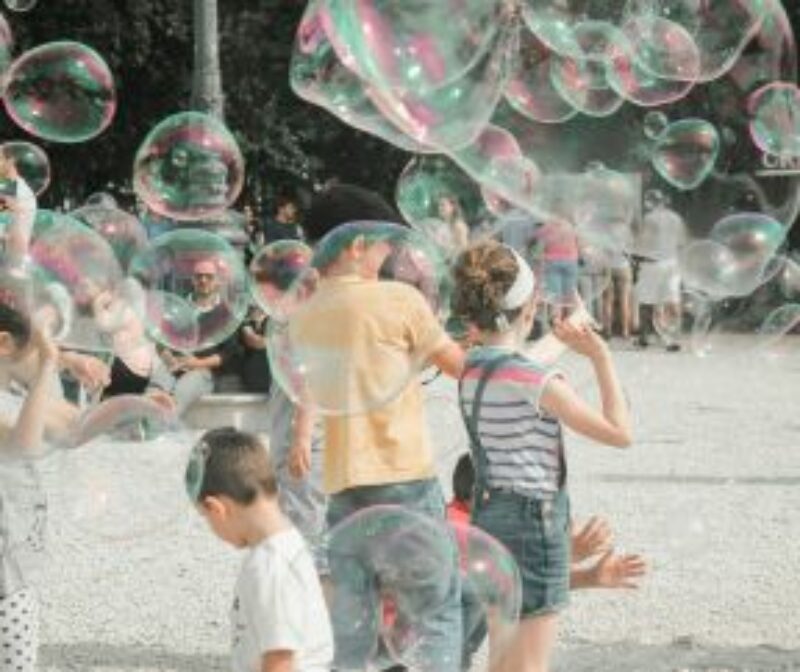Why do adults stop playing?
Ask any child why they play and they will likely give you a short answer. Something along the lines of “because it’s fun” or “because my friends do it”. The reasons children play don’t require profound psychological explanations. Yet, as adults with responsibilities, time constraints, and lower energy levels (although some adults do seem to have the super power of retaining toddler-like energy), it seems we need more of a profound reason to play.
So as an adult, why do we still need to play? Yes, I say need because just like we have to work, eat, sleep and breathe, play is something that gives meaning to our lives, it can create strong social connections, enhance motor coordination, or help us manage stress. But the challenge is that in order for us to be in a play state, we have to be in a relaxed state. This means that our basic human needs, like food, sleep, shelter and water, have to be met first. Studies have shown that animals in captivity tend to play more because their needs are met so they can explore play. The most recent data show that nearly half of all Americans, 49%, report frequently experiencing stress (which is the highest in Gallup’s trend to date). And according to the American Psychological Association, the relationship between sleep and stress goes both ways indicating that those who sleep less are more stressed, and those who are more stressed sleep less. Americans are more stressed and sleeping less. Could play be the answer to chronic stress and burnout? It definitely cannot solve all of our problems but research indicates that if we play more, our stress levels should go down, and if our stress levels go down, we will likely sleep better, and if we sleep better, we will feel more relaxed and likely have the capacity to play more. Ah yes, and there it is. Our mental and physical health and even spiritual (meaning, connection) are interconnected, so if we want to live fuller, less stressed lives, we have to figure out a way to make space for play.
Our time is a precious commodity. The world of work is increasingly more efficient, and it’s easier than ever to shop, cook meals, and communicate quickly, yet the time that the average adult sets aside for unstructured play is miniscule. But why is this?
Let’s break it down. There are 1440 minutes in a day. On average, people sleep between 8-9 hours. This means 480-540 minutes are spent sleeping. Next, there’s focused work which is estimated to take up 149-315 minutes per day depending on where you live in the world. Taking into account household chores, cooking, grocery shopping, school, spending time with friends and entertainment, the average person in the world has anywhere from 172 to 369 minutes of leisure. This means the average person has anywhere from 3-6 hours of unstructured time everyday. There is obviously a large distribution around the mean number of hours, and the average is highly dependent on context, cultural norms, socio economic status, and living situation. The reality is that we have time for play, we just often choose to spend our time doing other things. When we are stressed we resort to what we know, having healthy habits in place is essential to our wellbeing, but based upon the data, we aren’t making healthy choices.
Below is how the average American spends their free time:
- 2.5 hrs/ day watching TV
- 34 minutes on the computer
- 34 minutes socializing
- 20 minutes participating in sport or recreation
- 20 minutes relaxing
- 16 minutes reading.
Now, the question is, do any of these activities actually resemble play. According to the National Institute for Play and Dr. Peter Gray’s research, free play is made up of 5 necessary components:
- Self chosen and self directed
- Intrinsically motivated
- Structured or ordered (depending on the person’s preference)
- Imaginative or creative
- Full engagement of the mind (i.e. there are no consequences or fears of being judged)
So, the way most adults are utilizing the bulk of their leisure time, likely would not fulfill the necessary parameters for free play. As you may have guessed, children enter into free play much easier than adults do. Children are inherently less encumbered by the responsibilities of adulthood and have the freedom and space to do things just for the fun of it. As we age, how we each define play will look different. For those who have physically demanding jobs, the idea of going outside to play a pick up game with some friends might not enliven them with enthusiasm and a sense of fun. However, for those who have more sedentary roles, going outside to play might be just what they need after a long day of being on a screen. Regardless of how you define play in your life, psychological research on play highlights that play should bring about feelings of enjoyment and enthusiasm. For adults, play doesn’t have to be something we’re good at or even something that we are particularly knowledgeable about. Play is anything that energizes us and makes us feel more attuned to ourselves. Sometimes you may choose to play in a way that is fun for your family, friends or partner, but don’t forget to find a state of play that truly energizes YOU. And then invite friends or family to join you next time. Not only can this deepen relationships and foster stronger feelings of trust and reciprocity, it’s also a great way to experiment with new ways of playing. For inspiration on more ways to play as an adult, take a look at this list and try something that sounds fun to you.
Finding you Play Personality
Think back to when you were a kid. What kind of play did you enjoy? I am talking about the kind of play where the time flies by without any sense that hours have passed. As a kid, my sister and I used to love going on imaginary treasure hunts or experimenting with making mud pies in the sand box. We would spend hours outside pretending that we were explorers in search of buried treasure. Now as adults, my sister and I actually still play in ways that feel similar to when we were kids. We love to hike, explore local coffee shops, and search for hidden gems as we peruse local thrift stores. The way we play as adults often falls into particular categories that may resemble how we played as kids. The National Institute for Play has created a quiz for adults to help find their specific play personality. These personalities are listed below, and if you’re curious, you can take the play personality quiz here.
- THE COLLECTOR — PLAY BY FASCINATION
- THE COMPETITOR — PLAY BY KEEPING SCORE
- THE CREATOR —PLAY BY MAKING SOMETHING NEW
- THE DIRECTOR — PLAY BY PLANNING
- THE EXPLORER — PLAY BY LEARNING OR DOING SOMETHING NEW
- THE JOKER — PLAY BY BEING SILLY AND MAKING PEOPLE LAUGH
- THE KINESTHETE — PLAY BY MOVING YOUR BODY
- THE STORYTELLER — PLAY THROUGH YOUR IMAGINATION
Why is play so personal?
Play, like our cues for hunger, our fear responses, and our desire to help those we care for arises from our midbrain. Neuroscientist, Joak Panksepp, found that there are seven primary emotions that humans are born with: seeking, rage, fear, lust, care, panic, and play. Neurons in the midbrain of the brain light up (fire) when we encounter something playful. This creates a firing of more neurons that leads us to enter into a play state. But why do some people find vastly different things enjoyable? This is because we are all wired to respond differently to play because of our life experiences. For some people, their play state might be activated when in the presence of a certain person. For others, it might be an activity or a particularly nostalgic place. This is why you and your partner or your family might all have a hard time coming to a consensus as to what you think would be “fun”. The reasoning is because our brains are wired to respond to playful stimuli and the more we are exposed to these stimuli and associate certain people, places, or things with play the stronger the neural pathways become and the more fun we ascribe to whatever that playful state is.
Play as Connection
Play is not just important on an individual level. It is also crucial for maintaining and sustaining healthy relationships. Play in many ways can serve as a glue that brings people back together after a season of stress or adversity. The power of play cannot be underestimated, especially for adults. And here’s why:
Personal outcomes (short term) — It can lead to stress reduction, feelings of excitement and enjoyment. It can help the individual feel a temporary relief from everyday stressors and be fully present to the task at hand.
Personal Outcomes (long term) —Lauer & Lauer (2002) found that play can help us develop more abstract problem solving skills and flexible thinking
Relational Outcomes (short term) — It can lead partners to feel more connected to one another. Can create space for casual banter and ease of conversation. It can lead to positive emotions that are connecting and grounding for the couple
Relational Outcomes (long term) — It can create intimacy, trust and mutual support between partners. It can also reduce conflict over time between partners who play often. Aune & Wong (2002) also found that it can increase relational satisfaction over time.
Play as a Moral Imperative
Play goes far beyond finding something that you enjoy doing. Playing is sort of like taking a daily multivitamin. It keeps us functioning and living well. Research from Dr. Stuart Brown’s book, Play: How It Shapes the Brain, Opens the Imagination, and Invigorates the Soul, uncovered that play can protect against a whole host of negative health outcomes including depression, inflexibility, lack of empathy, poor impulse control, addiction and in some cases even violence.
If you aren’t fully on board with the idea that play is necessary for our survival, let’s take this one step further. Dr. Stuart Brown studied what happens when adults experience play deprivation. He found that men who had been incarcerated for homicides and mass shootings shared a common trait. He found that these men all had a deprivation of play in their lives. There are a whole host of other factors that lead someone to commit these kinds of violent crimes, but I cannot help but wonder about the role of play in their lives.
So if you weren’t convinced that play is worth your time before, consider making time to play today. Play is necessary for your survival, but it is also necessary for promoting a safer, more caring world for future generations. So what are you waiting for? The world is waiting for you to go play, and now you have the biological and psychological reasons to make it a priority.
Further Resources
- TED talk on the science of play:
- Documentary on the power of play and its benefits on our well being:
Continue Exploring

Emotions
Why You Need to Make Time for Play
You might be surprised about the benefits of play for your wellbeing and your spiritual health. Here's how to get more in your life.

Practices
Activities for Busting the Blues
Dr. Susan Mangan shares activities that help build resilience and beat the blues.

Joy
Dad Jokes: Science Agrees we Need More Laughter
Research shows that humor can ease stress during hard times. Dr. Susan Mangan shares 3 evidence-based practices to help us get started.
